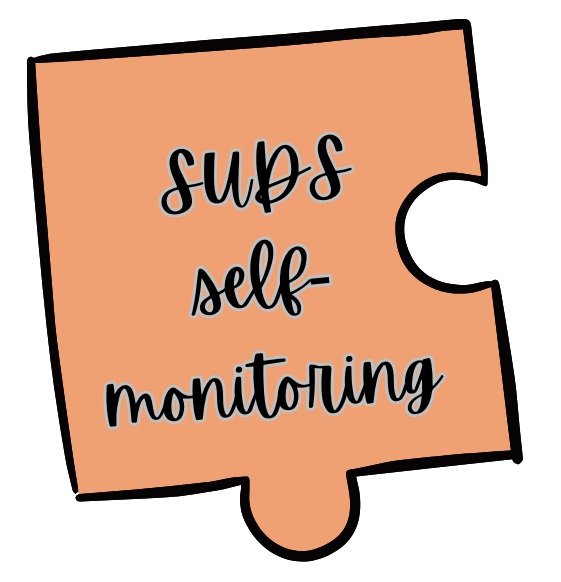Navigating the Holidays with OCD and ADHD: Finding Peace Amid the Chaos
The holiday season is often painted as a time of joy, connection, and celebration. But for those of us with ADHD, OCD, or both, this time of year can bring unique challenges. From managing rejection sensitivity dysphoria (RSD) to navigating the stress of perfectionism, intrusive thoughts, or overstimulation, the holidays can feel like a minefield of emotional triggers.
Whether you’re juggling a long list of to-dos, striving to meet social expectations, or struggling with the sensory overload of bright lights and bustling crowds, it’s essential to equip yourself with strategies to protect your mental health and find peace during this season.
Understanding the Intersection of ADHD, OCD, and the Holidays
Rejection Sensitivity Dysphoria (RSD):
Those with ADHD often experience heightened emotional sensitivity, especially to perceived criticism or rejection. During the holidays, this can manifest as feeling hurt by offhand comments from family members, worrying about disappointing others, or overanalyzing interactions at social gatherings.
Obsessive-Compulsive Patterns:
For individuals with OCD, the holidays can amplify intrusive thoughts, perfectionistic tendencies, or compulsions. Whether it’s needing the “perfect” decorations, obsessing over gift-giving, or feeling overwhelmed by changes in routine, these challenges can overshadow the joy of the season.
Executive Dysfunction and Overstimulation:
The ADHD brain can struggle with planning, prioritization, and follow-through—skills that are often put to the test during the holiday rush. Add in sensory overload from crowded stores, loud music, or flashing lights, and it’s easy to feel overwhelmed.
Strategies to Handle RSD, OCD, and Holiday Stress
Name and Normalize Your Feelings
Recognize that heightened emotions or compulsive patterns are not personal failings—they are part of how your brain processes the world. Naming what you’re experiencing (e.g., "This is my RSD reacting," or "This is an OCD compulsion") can help you take a step back and approach the situation with self-compassion.
Set Boundaries Early
Protecting your emotional and mental health often means saying no to things that don’t serve you. For example:
- Decline invitations to overwhelming events.
- Set limits on how long you’ll stay at gatherings.
- Communicate upfront about what you can and can’t take on (e.g., gift exchanges, hosting responsibilities).
Prepare for Social Interactions
If you know family dynamics or social gatherings may trigger RSD or OCD-related stress, plan ahead:
- Rehearse Responses: Prepare neutral or kind phrases for situations where you might feel criticized or overwhelmed (e.g., "That’s an interesting perspective" or "Let me think about that and get back to you").
- Have an Exit Strategy: Give yourself permission to leave if a situation becomes too much. A polite, “I need to step out for a moment,” can be a lifesaver.
Focus on Progress, Not Perfection
Holiday perfectionism is a common trap, but it’s especially challenging for those with OCD. Whether it’s decorating, cooking, or gift-giving, remind yourself that “good enough” is more than enough. If intrusive thoughts arise, practice mindfulness by focusing on the present moment rather than striving for unattainable standards.
Manage Overwhelm with a Clear Plan
Break tasks into small, manageable steps to avoid ADHD-related overwhelm:
- Use a checklist to prioritize what truly matters.
- Set timers to help you stay on track without hyperfocusing.
- Delegate tasks where possible—whether it’s asking someone else to bring dessert or wrapping gifts over multiple days instead of all at once.
Build in Recovery Time
Schedule downtime to decompress from the sensory and emotional overload of the season. Engage in activities that help regulate your nervous system, such as:
- Deep breathing or grounding exercises.
- Listening to calming music or a favorite podcast.
- Taking a quiet walk outdoors.
Reframe Interpersonal Challenges
RSD can make it feel like every awkward interaction or critical comment is a reflection of your worth. Practice reframing these moments:
- Consider alternative explanations for others’ behavior (e.g., “They might be stressed too”).
- Remind yourself that other people’s opinions don’t define your value.
Lean Into Self-Compassion
The holidays can amplify feelings of “not being enough,” especially when perfectionism or rejection sensitivity comes into play. Treat yourself with the same kindness you would offer a friend. It’s okay to have limits, to make mistakes, and to prioritize your mental health.
A New Holiday Perspective
The holidays don’t have to be perfect to be meaningful. By understanding your unique needs and embracing strategies that honor your mental health, you can navigate this season with more ease and authenticity. Whether it’s allowing yourself to say no, reframing emotional triggers, or finding joy in small, intentional moments, you’re building a holiday season that reflects not just tradition but also self-care.
What challenges do you face during the holidays, and what strategies have helped you manage them? Share your experiences in the comments—I’d love to hear how you’re creating space for joy and peace this season.



.png)
.png)










.png)








.png)


0 Comments